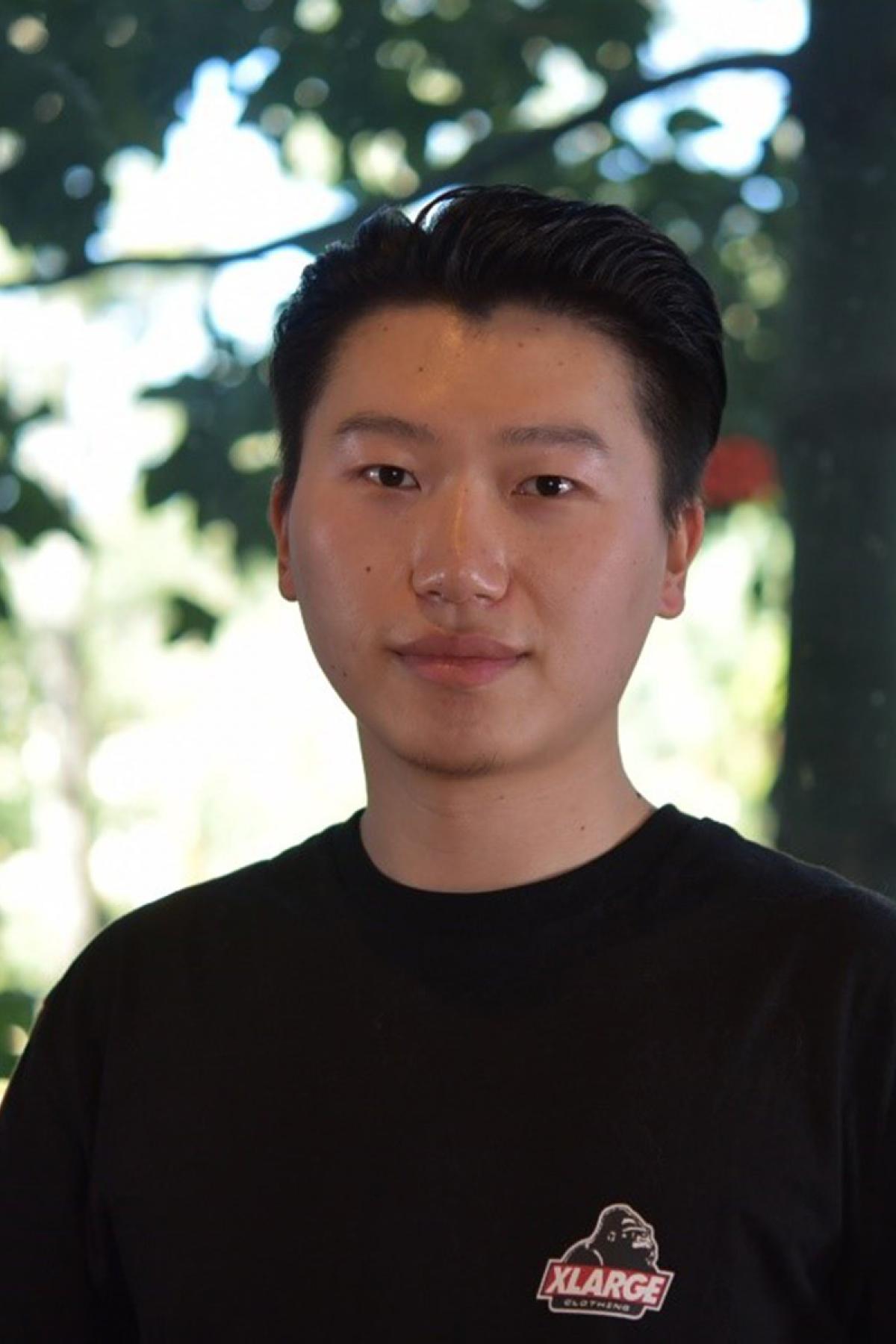Polymer and Lipid Nanoparticles for Therapeutics Delivery
Breast cancer is the second most common cancer to cause death in women. Triple-negative breast cancer (TNBC) accounts for about 15% of all breast cancers.
The extremely heterogeneous nature of TNBC and associated complications of resistance and metastasis pose a significant challenge. Simple monotherapies using conventional formulations are inadequate to fight the stubborn TNBC. Also, the high heterogeneity of the disease and the lack of suitable preclinical models make the development of effective treatment even more difficult. My research ambition is to develop highly effective and flexible strategies that facilitate the delivery and release of multimodal therapeutics into specific pathogenic areas for TNBC synergetic therapy, thus achieving effective clinical therapy for TNBC patients.
This project will advance knowledge of multimodal drug codelivery, multimodal nanomedicine, the complex interplay between tumour heterogeneity and therapeutic nanomedicine efficacy. The shift from monotherapy to multimodal therapy and the new knowledge acquired from this project will ultimately accelerate the clinical translation of cancer nanomedicine for precision TNBC therapy and position Australia at the forefront of this emerging field.
Current projects

Dr Yun Liu
Polymer Nanoparticles for tunable drug loading
Primary investigator
Dr Yun Liu
Post Doctoral Researcher
Project abstract
Dr Liu’s research experience has been focused on biopharmaceutical engineering, including the areas of nanomaterials, drug delivery, polymer self-assembly, and controlled release. Dr Liu has invented a novel sequential nanoprecipitation platform technology for forming stable drug-core polymer-shell nanoparticles with high drug loading (up to 60%, mass fraction of drug in the entire drug-loaded nanoparticles) from a wide range of polymers and drugs. This technology is based on tuning the precipitation time of drugs and polymers using a solvent system comprising multiple organic solvents, which allows the formation of drug nanoparticles. This technology offers a new strategy to manufacture polymeric nanoparticles with high drug loading that have good long-term stability and programmed release, and opens the door for a unique opportunity in drug delivery applications. Dr Liu is working on high drug loading related projects to investigate the advantages of high drug loading and apply this technology to more drugs and materials.

Dr Letao Xu
Development of Multifunctional Nanoparticles for Cancer Combination Therapy
Primary investigator
Dr. Letao Xu
Researcher
Project abstract
This project aims to develop a facile one-step platform technology to make lipid-based NPs with tunable drug loading from low to exceptionally high drug loading for cancer drug delivery applications. Firstly, a new sequential nanoprecipitation technology will be developed to synthesize lipid-based NPs with various drugs loaded, and to characterize their properties systematically (size, size distribution. stability, etc.). Then, the underlying formation mechanism of lipid-based NPs with high drug loading will be investigated using precipitation curves, Förster resonance energy transfer (FRET)-based fluorescence analysis, their drug release kinetics will be evaluated using both conventional FRET and J-aggregate-based FRET methods. A library of lipid-based NPs with tunable drug loading will be established, and their in vitro and in vivo properties will be systematically studied and compared to gain fundamental understanding of the effect of drug loading on their anti-cancer efficacy. Lastly, a continuous microfluidic technology will be developed for large scale production of lipid NPs for future clinical applications.

Mr Xing Wang
Development of lipid nanoparticles for mRNA delivery
Primary investigator
Mr Xing Wang
PhD Candidate
Project abstract
This project aims to screen the optimal formulations of lipid nanoparticles for mRNA delivery, and to evaluate their efficiency in delivering mRNA-encoding phosphatase and tensin homolog deleted on chromosome 10 (PTEN) for triple-negative breast cancer (TNBC) treatment. To achieve this goal, an enhanced green fluorescent protein (EGFP)-encoding mRNA will be used as a model mRNA for initial screening. A library of EGFP-encoding mRNA encapsulated lipid nanoparticles (EGFP mRNA-LNPs) will be synthesised using a microfluidic staggered herringbone micromixer (SHM) device. Physicochemical properties of the mRNA-LNPs such as size, surface charge, morphology and stiffness will be examined to understand their influence on the mRNA transfection efficiency. The optimal formulations will be obtained by screening the mRNA-LNP library. At last, PTEN-encoding mRNA-LNPs will be synthesised based on the optimal formulations, and will be evaluated using in vitro and in vivo TNBC models.

Miss Song Jin
Combination therapy/tunable drug loading NPs
Primary investigator
Miss Song Jin
PhD Candidate
Project abstract
Breast cancer is the second most common cancer to cause death in women. About 17,000 Australian women are diagnosed with breast cancer each year. Triple-negative breast cancer (TNBC) accounts for about 15% of all breast cancers. Chemotherapy remains the primary systemic treatment using single-agent taxanes or anthracyclines as the first-line therapy. Conventional cytotoxic anticancer therapy is often associated with low therapeutic efficacy and increased systemic toxicity. TNBC patients frequently develop multidrug resistance. The extremely heterogeneous nature of TNBC and associated complications of resistance and metastasis pose a significant challenge. Simple monotherapies using conventional formulations are inadequate to fight the stubborn TNBC. To address these challenges, combinatorial or multimodal therapeutics involving simultaneous administration of two or more drugs or treatments in a single platform is needed to target multiple disease mechanisms.

Mr. Moataz Zewail
Development of Cell membrane-coated lipid nanoparticles
Primary investigator
Mr. Moataz Zewail
PhD Candidate
Project abstract
Cell membrane coating bio-nanotechnology has emerged as an attractive approach for surface modification of nanoparticles, garnering significant interest across diverse biomedical applications, particularly in cancer therapy. The multitude of cell types available offers a wide array of cell membranes, each possessing distinct biological properties and exceptional biocompatibility. By combining cell membranes with lipid nanoparticles, one can harness the advantageous attributes of both the core lipid nanoparticles and the enveloping cell membranes. This fusion imparts the composite with augmented drug-targeting capabilities, prolonged retention in the bloodstream, and the ability to modulate the immune response. This project aims to develop novel cell membrane-coated lipid nanoparticles for cancer therapy.

Mr. Yilong Fan (Evan)
Development of Nanomedicine Libraries with Varied Properties for Drug Delivery
Primary investigator
Mr. Yilong Fan (Evan)
PhD Candidate
Project abstract
This research project is focused on engineering advanced nanomaterials for efficient drug delivery, incorporating in vitro cell models and in vivo mice experiments. By crafting a diverse array of nanoparticles (NPs) with varied drug-loading capacities, membrane coatings are explored for their role in enhancing cell uptake and endosomal escape. The goal is to systematically alter NP characteristics—such as size, surface charge, and chemistry—to optimize drug release profiles and improve therapeutic outcomes. This comprehensive approach aims to bridge the gap between nanomaterial design and clinical application, offering insights into the nuanced interplay of NP attributes and delivery efficacy.
